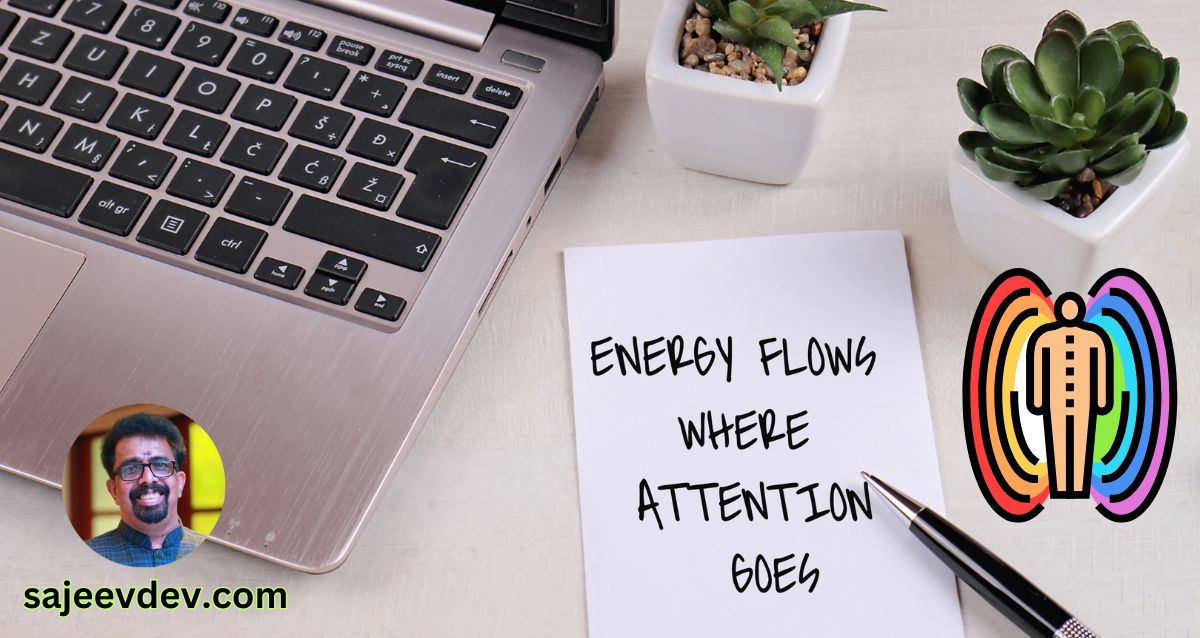Attention is a fundamental cognitive process that allows individuals to prioritize information and resources effectively. It serves as the gateway to perception, enabling us to focus on particular stimuli while filtering out distractions. Psychologically, attention affects our thoughts, emotions, and actions; it influences how we interpret experiences and make decisions. The concept of attention is not only crucial for everyday functioning but also has significant implications for our overall success and well-being.
From a scientific perspective, attention is often described through different models, such as the capacity theory and the spotlight model. The capacity theory suggests that our attentional resources are limited, implying that we must allocate these resources wisely to tasks that matter most. Conversely, the spotlight model posits that attention acts like a spotlight, illuminating specific areas of focus while leaving others in the dark. Both frameworks reveal the inherent value of directing attention effectively, demonstrating its critical role in cognitive processes like memory and learning.
The relationship between attention and cognitive processes highlights the importance of intentional focus in achieving personal and professional goals. When we consciously direct our attention toward a specific objective, we enhance our ability to process information related to that goal. This focused approach not only increases engagement but also fosters greater emotional investment, resulting in improved resilience against distractions. Consequently, understanding how attention works equips individuals to harness their cognitive capabilities better, ultimately leading to more effective goal attainment.
In a world filled with constant distractions and competing priorities, the ability to manage and direct our attention has become increasingly vital. By recognizing the significance of attention and its influence on our lives, we can develop strategies to enhance our focus and achieve greater success in various endeavors.
The Power of Focus
Focus serves as a critical element in the performance of various tasks, influencing both personal and professional productivity. Research underscores the significant impact that concentrated attention has on our ability to achieve desired outcomes. For instance, studies have shown that a focused mind is not only more efficient but also more effective in problem-solving and decision-making processes. When individuals concentrate on a task, they can leverage their cognitive resources to tackle complex challenges, thereby enhancing their productivity levels dramatically.
Moreover, the importance of focus extends to wellbeing as well. Engaging mindfully in activities promotes a state of flow, characterized by full immersion in tasks. This heightened presence not only increases performance but also fosters a positive emotional state. Individuals who practice focus report lower levels of stress and greater satisfaction in their everyday lives. The act of being fully present allows for deeper connections with tasks and the surrounding environment, leading to better engagement and understanding.
Transformative outcomes arise when people actively cultivate their ability to focus. Techniques such as mindfulness, technique of single-tasking, and structured breaks can enhance attention span and clarity. By minimizing distractions, one can channel their energy more effectively toward achieving specific goals. Researchers have found that this intentional narrowing of attention not only amplifies productivity but also contributes to psychological resilience and improved overall health.
Consequently, the power of focus is evident in the way it shapes success across various domains. By harnessing focused attention, individuals can unlock their full potential, leading to advances in their professional undertakings and improvements in personal fulfillment. Embracing practices that foster focus is essential for anyone seeking to enhance their effectiveness and wellbeing in an increasingly distracted world.
Identifying Your Goals
To harness focus effectively, it is imperative to identify and define your goals clearly. This process begins with reflection, allowing you to explore what truly matters to you. Consider your values, passions, and the areas of your life where you wish to see growth. Creating a mind map can be an effective exercise for this stage; jot down your aspirations and connect them to broader life themes, which will help in crystallizing your objectives.
Once you have a general idea of your goals, the next step is to ensure they are articulated in a structured way. One effective method is to employ the SMART criteria. SMART goals are Specific, Measurable, Achievable, Relevant, and Time-bound. For instance, rather than stating a goal as “I want to be healthier,” consider formulating it as “I will exercise for 30 minutes five times a week for the next three months.” This clarity not only sets a clear target but also facilitates tracking progress, which can be motivating.
Additionally, it is crucial to prioritize your goals. This can be accomplished by evaluating which objectives resonate most deeply with you and have the potential to evoke passion and commitment. Once you recognize these priorities, allocate focused energy towards them. Directing energy towards your primary goals ensures that your efforts yield significant growth and fulfillment. Set scheduled review sessions to assess your progress, which will bolster your accountability and allow for timely adjustments as needed.
In understanding and identifying your goals, you pave the way for a clear focus, which is essential in harnessing your energy effectively. By doing so, you not only create a structured roadmap for your journey but also enhance your capability to achieve personal growth and success.
The Role of Distractions
Distractions play a pivotal role in our ability to focus on tasks and ultimately achieve our goals. These distractions can be broadly categorized into two types: internal and external. Understanding these categories can help individuals identify their personal obstacles and develop strategies to minimize their impact.
Internal distractions include thoughts and emotions that arise from within. For instance, anxiety about a deadline may dominate an individual’s mind, resulting in a lack of concentration on the task at hand. Similarly, negative self-talk or an overwhelming sense of doubt can further hamper focus, preventing individuals from fully engaging with their objectives. These internal disruptions not only derail attention but can also lead to reduced productivity and hinder progress toward success.
On the other hand, external distractions originate from the surrounding environment. One of the most prominent sources of external distractions today is social media. The constant notifications and the urge to check updates can divert attention away from important tasks, leading to fragmented focus and inefficiencies. Additionally, physical environments, such as noisy workplaces or cluttered desks, can create further obstacles, making it challenging to maintain concentration. Workplace dynamics, including unproductive meetings or unnecessary interruptions from colleagues, can also contribute to this external distraction landscape.
Both internal and external distractions can be detrimental to achieving success. They not only consume valuable time but also exert a mental toll that can lead to burnout and reduced motivation. To combat these distractions, it is essential for individuals to create a conducive environment for focus and develop mindfulness practices to manage internal thoughts and emotions effectively. Establishing clear boundaries and utilizing productivity techniques can further bolster one’s ability to concentrate, directing energy and attention toward the pursuit of their goals.
Strategies to Enhance Focus
In a world filled with distractions, enhancing focus becomes imperative for achieving personal and professional success. Several strategies can be integrated into daily routines to develop and maintain concentrated attention. Employing techniques such as the Pomodoro Technique, mindfulness practices, and goal visualization can significantly improve one’s capacity to focus.
The Pomodoro Technique is a time management method that encourages individuals to work in intervals, typically 25 minutes, followed by a short five-minute break. This structured approach not only helps in maintaining attention but also enhances productivity by minimizing mental fatigue. After four pomodoros, a longer break of 15-30 minutes can be taken, allowing for mental rejuvenation. By setting specific tasks for each interval, individuals can cultivate a strong sense of accomplishment, reinforcing focus and motivation.
Mindfulness practices, such as meditation, can also play a critical role in enhancing focus. Engaging in mindfulness increases one’s awareness of the present moment, which fosters clarity and reduces distractions. Simple techniques include mindful breathing exercises, which can be practiced for just a few minutes daily. Over time, these practices condition the mind to retain attention for longer periods, reducing tendencies toward wandering thoughts.
Goal visualization is another powerful tool for enhancing focus. By imagining the successful completion of specific tasks or objectives, individuals can create a mental framework that guides their actions. Visualization encourages a deeper emotional connection to one’s goals, making the desire to achieve them more compelling. To maximize effectiveness, it is beneficial to visualize both the process and the outcomes associated with one’s objectives, helping to maintain motivation throughout the journey.
Consistent practice of these strategies will cultivate long-term habits, resulting in improved focus over time. Emphasizing regular implementation will lead to enhanced attention management skills, ultimately guiding individuals toward success.
Creating a Conducive Environment
In order to harness focus and maximize productivity, it is essential to create an environment that supports sustained attention. This includes both physical and digital spaces, which play a significant role in influencing our ability to concentrate. A well-organized workspace can significantly reduce distractions, while digital environments can be optimized with the right tools and applications.
First, let us consider the physical workspace. A clutter-free environment has been shown to enhance focus by minimizing visual distractions. Start by decluttering the area, removing unnecessary items that can divert your attention. Organizing your desk or work area can also be beneficial. Utilizing storage solutions, such as organizers or filing systems, helps keep essential materials readily accessible while maintaining a clean surface. It is advisable to keep personal items to a minimum, as too many personal mementos can lead to distraction instead of support.
In addition to physical organization, it is crucial to create an atmosphere that enhances focus. This may involve adjusting lighting, reducing noise, or introducing elements that promote concentration, such as plants or calming artwork. The choice of location is also significant; if possible, select a quiet area away from traffic and disturbances, enabling better absorption in tasks.
Transitioning to the digital environment, there are numerous applications available designed to help minimize distractions. Tools that limit access to social media or block distracting websites during work periods can significantly improve focus. Additionally, using task management applications allows for better organization of one’s responsibilities, ensuring that attention is directed toward high-priority tasks rather than getting sidetracked. By carefully curating both the physical and digital environments, one can effectively harness focus, ultimately paving the way for greater success.
Cultivating a Mindset for Success
Success starts in the mind, and cultivating a robust mindset is essential for honing focus and achieving one’s goals. Central to this process is the concept of self-belief; when individuals genuinely believe in their capabilities, they are more likely to set ambitious goals and persist in the face of challenges. This intrinsic motivation fuels the drive necessary to maintain focus, turning intentions into actions.
Another critical factor in this journey is resilience. Resilience, or the ability to bounce back from adversity, fosters a strong mental framework that helps individuals navigate setbacks without losing sight of their objectives. Instead of perceiving obstacles as insurmountable barriers, resilient individuals view them as opportunities for learning and growth. This shift in perspective enables sustained focus, as the individual commits to overcoming difficulties rather than succumbing to doubt.
Additionally, nurturing a growth mindset can significantly enhance focus. A growth mindset is the belief that abilities and intelligence can be developed through dedication and hard work. This mindset encourages individuals to embrace challenges, persist through difficulties, and learn from criticism. Recognizing that efforts contribute to incremental improvements allows individuals to remain focused on their long-term aspirations, even when immediate results are not visible.
Moreover, motivation plays a pivotal role in maintaining this focus. It is essential to identify personal drivers—why certain goals matter and how they align with one’s values. By continually reminding oneself of these motivations, individuals can cultivate a strong, unwavering focus on their objectives, regardless of surrounding distractions or setbacks. Ultimately, fostering a mindset characterized by self-belief, resilience, and motivation empowers individuals to leverage focus effectively, turning aspirations into tangible success.
Measuring Your Progress
Establishing metrics to evaluate your progress toward achieving your goals is fundamental to harnessing focus effectively. This process involves utilizing various tracking methods to assess not only the outcomes but also the pathways leading to those outcomes. One of the most effective ways to achieve this is through the use of journals. Journals allow for the documentation of daily tasks, reflections on productivity levels, and evaluations of the focus exerted towards tasks. By regularly recording your thoughts and actions, you can gain insightful clarity on what strategies are working and which are not.
Data tracking methods also play a crucial role in keeping you accountable for your progress. Utilizing tools such as mobile applications, spreadsheets, or even simple charts can help visualize data regarding your daily focus and productivity levels. These metrics can range from the number of tasks completed to the time spent on specific activities. By analyzing this data, you can adjust your strategies to optimize focus, thereby enhancing productivity. For example, if data reveals prolonged distractions during certain activities, it may be time to implement techniques such as the Pomodoro Technique, where work is broken down into intervals, separated by short breaks.
Celebrating small wins throughout your journey cannot be overstated. Acknowledging these milestones reinforces motivation and provides a sense of accomplishment. These small victories serve as reminders of your progress and encourage sustained focus on your goals. Whether it’s completing a challenging task or maintaining consistent productivity levels for a week, recognizing these achievements reinforces positive behavior and builds momentum toward larger goals. By weaving together regular progress measurement with acknowledgment of achievements, you create a robust framework that can significantly enhance focus and ultimately lead to success.
Achieving sustained focus requires a deliberate approach to managing one’s mental and physical resources
Achieving sustained focus requires a deliberate approach to managing one’s mental and physical resources. The journey to success is not only about maintaining attention but also about ensuring that it is directed effectively towards defined objectives. One key strategy for maintaining focus over time is to establish healthy boundaries that prevent burnout. This can be done by incorporating regular breaks into the daily routine, which allows the mind to rest and recover from intense concentration periods. Such breaks are vital, as they foster creativity and innovation when returning to tasks.
Moreover, periodic reassessment of goals is essential. Individuals should regularly evaluate their objectives to confirm they remain aligned with their long-term aspirations. This helps in adjusting focus when faced with new opportunities or obstacles that may arise. Setting incremental milestones contributes to a sense of accomplishment which can further enhance commitment. When goals are broken down into smaller, manageable tasks, the journey towards achieving them becomes less daunting, and focus can be better maintained.
Flexibility plays a critical role in sustaining focus. Life is unpredictable, and circumstances can shift, necessitating an adapted mindset. By embracing adaptability, individuals can shift their attention and priorities without losing sight of their primary objectives. Continuous evaluation of one’s progress is vital; this encourAttention is a fundamental cognitive process that allows individuals to prioritize information and resources effectivelyages adjustments to strategies and practices used to maintain focus. Furthermore, reflecting on achievements and learning from setbacks fosters resilience, which is crucial for long-term commitment. The culmination of these practices results in a robust framework for maintaining focus over time.









